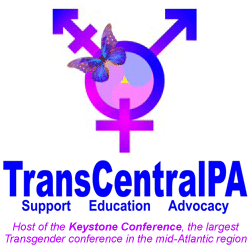Academic Transgender Studies Website Update
A couple of weeks ago, we told you about the ATSW. Coming in too late for publication then was a note from its creator, Walter Williams.
He answered a few questions, and offered a correction. (See it after the jump.)
He writes: “The only change I would ask is for you to insert the words ‘by a student’ in the statement on Brazil. ‘However, one study points out should read ‘However, one study by a student points out’. I do not agree with that sentiment, so I do not want readers to think I am anti-transsexual.”
How did you come to be interested in this field of study?
I had been doing research and publishing books on Native Americans for several years, when I started running across references to transgender people in native cultures. I had all the negative opinions about trans people that others raised in our transphobic culture have absorbed. Then in 1982 I lived on the Sioux reservations doing ethnographic fieldwork research in South Dakota, and saw with my own eyes how deeply respected and central to family and community life they were, and still are among traditionalists who follow the Lakota religion. That experience revolutionized my attitudes, and I realized my cultural prejudices and limitations. I fell in love with a “winkte” (the name for transgender people in the Lakota language) and that experience transformed my life. Even though I am not transgender myself, ever since then I have championed transgender rights. My 1986 book “The Spirit and the Flesh: Sexual Diversity in American Indian Culture” and my most recent book “Two Spirits: A Story of Life with the Navajo” grew out of that fieldwork research.
There’s a focus on the transgender experience outside of the United States and Europe. Why?
What are your hopes for the study?
My hopes for the Academic Transgender Studies website is that it will become a place where people who have information about different cultures around the world can write in and contribute data on those societies. At this point we have only begun to scratch the surface. See particularly my student’s video “A World in Transition” about the hijra in India at the South Asian section of the website, for an inspiring example of what kind of work needs to be done. But I also want to include information on the United States and Europe, so that the website can be truly global. My hope is that anyone, from a scholar to a transgender youth who is just coming to accept their own nature, can go there and realize the long history of transgenderism as a factor in human existence. My hope is that this website can help people to get beyond their cultural limitations and recognize the reality that transgender people are an integral part of humanity and should be accepted and valued for the unique contributions they can make for human progress in the future. That future can only be built on an accurate knowledge of the past, and of the diversity of cultures around the world. That is what I hope to contribute.
Category: Transgender Community News










